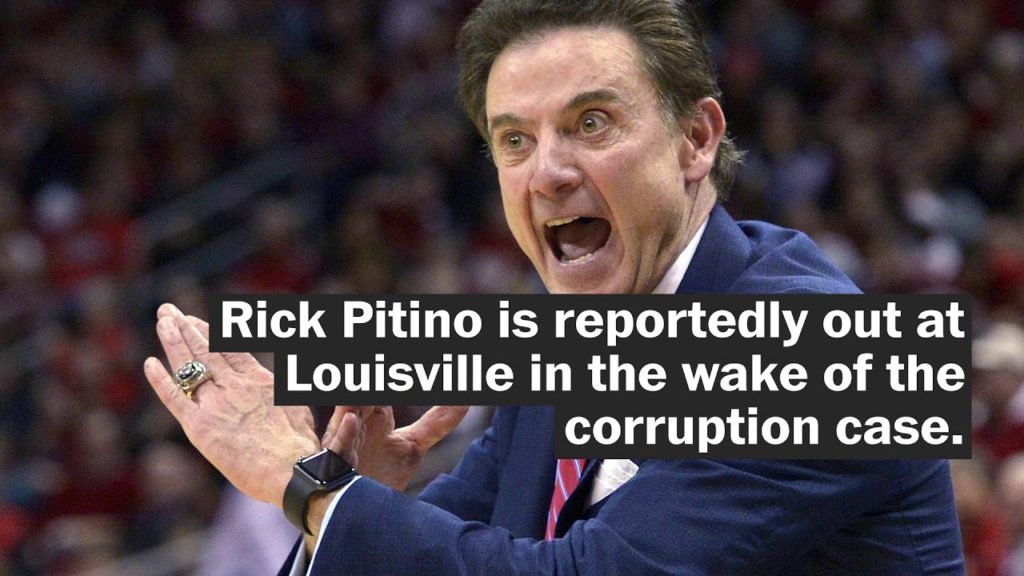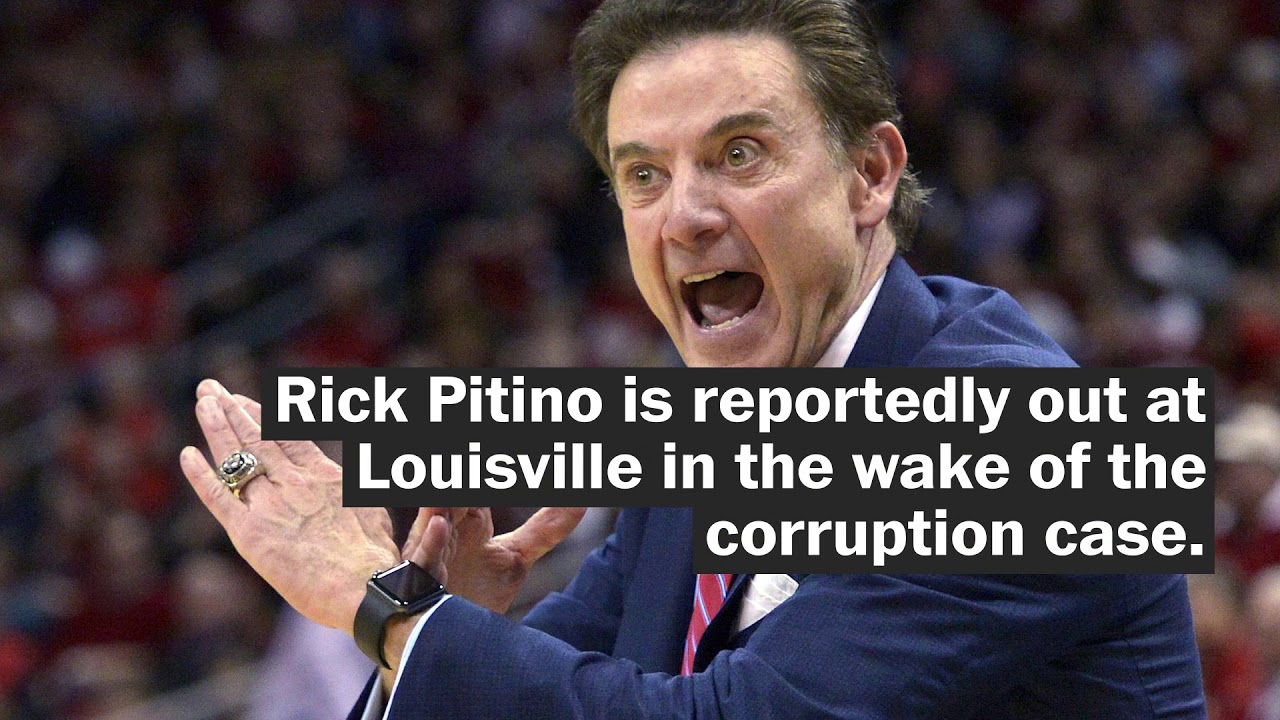
Back before journalists began adding the suffix “gate” to any scandal after Watergate, one of the biggest crimes in sports exploded exactly 97 years ago last Friday. As The New York Times reported on September 29, 1920:
EIGHT WHITE SOX PLAYERS ARE INDICTED ON CHARGE OF FIXING 1919 WORLD SERIES
While the eight Black Sox players, as they became known, were acquitted in 1921 due to insufficient evidence, they were banned from baseball for life.
Sports and money have always gone hand in hand, involving players, teams, managers, gamblers, and anyone looking to gain a dishonest advantage. Therefore, it comes as no surprise that a new scandal involving expensive sneakers and student athletes has become big business.
As reported by The New York Times (Sept. 27), “That fundamental truth about high tops and cleats — that getting top players in your brand and keeping them there is good business…
“The University of Louisville announced on Wednesday that it had abruptly ended the coaching tenure of Rick Pitino, winner of two national championships and among the most successful coaches in college basketball history.”
Sadly, this isn’t Pitino’s first time at the scandal rodeo.
As reported by USA Today (Sept. 27), in 2009, Pitino was involved in a sex and extortion scandal. In 2015, Katrina Powell detailed illicit activities with basketball recruits in her book, Breaking Cardinal Rules and the Escort Queen.
And now, just two years later, Pitino’s involved in another scandal, this time with sports shoemaker Adidas.
“The complaint,” The New York Times continues, “which accused an Adidas executive and others of wire fraud and money laundering, did not disclose the names of anyone at Louisville. …
“The plan, prosecutors said, was that the teenage athletes would play for a university that had a sponsorship deal with Adidas and then sign sponsorship deals of their own with the company once they turned pro and potentially earned millions of dollars in the N.B.A. In other words, investing in athletes at a young age could yield huge returns later.”
How did all this get started?
“Shoe company involvement in college sports dates to 1977,” The Times writes, “when Sonny Vaccaro — a longtime basketball hand and then shoe-company executive — signed several coaches he knew, including Jerry Tarkanian of Nevada-Las Vegas, to contracts with Nike. For a fee, the coaches were sent shoes to have their players wear.
“ ‘My theory was if you had coaches with good teams with personalities, you would sell shoes,’ said Vaccaro, who is often credited with urging Nike to sign Michael Jordan before he reached the N.B.A. ‘I said, Put the shoes on the college kids.’
Vaccaro said that ‘the world changed’ in 1987, when Nike signed its first all-school deal, agreeing to sponsor all the athletic teams at the University of Miami.
“ ‘Now all the major schools are all-school deals with one shoe company,’ he said. ‘That gives them control over everything. You do an all-school deal, the president signs off, the athletic director, the coach — you own everything in that school.’
“ ‘That shoe company is now your business partner,’ he added. ‘It wasn’t in ’77. It behooves everybody for the school to win games. That’s the marriage.’ ”
Apparently, the “marriage” is headed for court, and not divorce court.
“Federal prosecutors in New York announced charges of fraud and corruption against 10 people, including Auburn’s Chuck Person, Oklahoma State’s Lamont Evans, Arizona’s Emanuel ‘Book’ Richardson and USC’s Tony Bland,” ESPN reported (Sept. 26).
“Each of the coaches is charged with bribery conspiracy, solicitation of bribes, honest services fraud conspiracy, honest service fraud, conspiracy to commit wire fraud and Travel Act conspiracy. The U.S. Department of Justice said each of the coaches faces a maximum sentence of 80 years in prison. …
“The FBI also arrested James Gatto, director of global sports marketing for Adidas; Merl Code, another Adidas employee; Christian Dawkins, a former NBA agent who was recently fired from ASM Sports; Munish Sood, a financial adviser; Jonathan Brad Augustine, president of The League Initiative and program director of the Adidas-sponsored 1 Family AAU program; and Rashan Michel, a former NBA official who founded Thompson Bespoke Clothing, a custom clothier for athletes. …
“The FBI conducted an elaborate undercover operation, starting in 2015… Using wiretaps, surveillance video, undercover agents and cooperating witnesses, the FBI was able to document coaches accepting bribes to steer their players to certain financial advisers and/or business managers. In other cases, high-ranking Adidas employees worked with others to pay prospective student-athletes’ families to ensure the players signed with Adidas-sponsored schools and then signed with Adidas once they turned pro, the complaint alleges.”
In 2013, I wrote about NCAA basketball coach Bobby Knight (The Dark Knight of “Wisdom”), and his focus on winning, no matter the cost.
Sadly, my words at the end of that commentary remain as relevant as ever:
“…college and university presidents need to take a hard look in the mirror and consider just what’s important: winning-at-any-cost, or role-modeling a reputation of honor.”
Comments
Leave a Comment












As usual, Jim has it right.
For decades this has gone on with NCAA officials turning blind eyes to what has been obvious to fans. There was a reason the entire Ivy League banned spring football practice and has kept ticket prices under 10 bucks.
“Follow the money” has always been the mantra, and once again, it is correct. And to be perfectly honest, the behavior will not change because of this single investigation, but just become more covert. Wonder why the same athletes have rap sheets once they reach the Biggies? Easy, because they got away with it all through their “educations” in college.